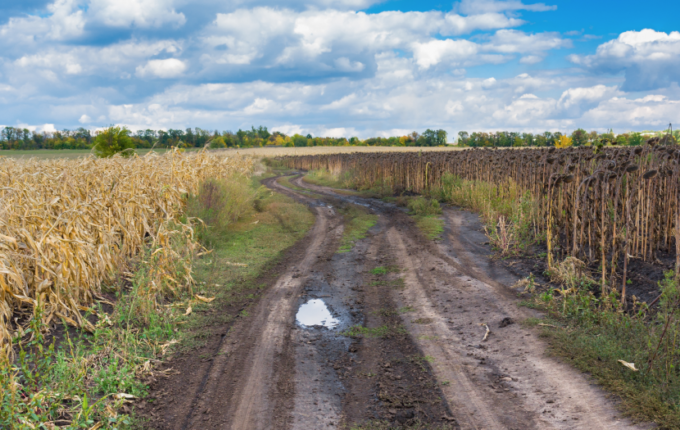It’s no secret that farmers nationwide oppose the Obama Administration’s 2015 Waters of the U.S. (WOTUS) Rule. As we’ve written here before, the 2015 Rule would significantly expand the area where the federal government has the authority to regulate water. Why? Because under the 2015 Rule many tracts of land would become newly regulated “waters,” even land that is only wet for a couple of hours after it rains.
If implemented, farmers would have to apply for costly federal government permits to engage in even the most basic farming practices on these lands. And there is no guarantee that those permits would be approved. Accordingly, numerous federal lawsuits were filed in 2015, including one brought by American Farm Bureau, in the hopes of stopping the WOTUS Rule.
On Monday, the Supreme Court of the U.S. (SCOTUS) once again waded into the WOTUS Rule waters, issuing an opinion in one of those lawsuits, National Association of Manufacturers v. Department of Defense (NAM). The Court’s decision wasn’t a blockbuster (or a page turner, for that matter). It merely stated that opponents of the Rule had to file their legal challenges in the federal district courts, not the federal appellate courts. That’s the result the opponents of the Rule were hoping for. So, let’s call it a narrow win for farmers and other landowners.
But, ironically, the Court’s decision may be a double-edged sword. To explain why, we’ve got to look back at those 2015 lawsuits we mentioned above.
Remember that, until Monday, opponents of the WOTUS Rule weren’t exactly sure where to file their lawsuits. Should they file in federal district court or federal appellate court? To hedge their bets, multiple lawsuits were filed in both courts. Of the cases filed in federal district court, most were dismissed by federal trial judges who said they didn’t have authority to hear the challenges because the cases should have been—wait for it—filed in the federal appellate courts! But a district court judge in North Dakota said otherwise and blocked the 2015 Rule from taking effect. However, that ruling only applied to 13 states: Alaska, Arizona, Arkansas, Colorado, Idaho, Missouri, Montana, Nebraska, Nevada, New Mexico, North Dakota, South Dakota, and Wyoming. Therefore, North Carolina farmers were not protected by the judge’s order.
KEY POINTS
- SCOTUS ruled legal challenges to the WOTUS Rule must be filed in federal district courts, not federal appellate courts—a narrow win for NC farmers.
- But the ruling currently blocking the WOTUS Rule from taking effect nationwide was issued by a federal appellate court.
- Since SCOTUS just ruled that appellate courts don’t have jurisdiction to hear legal challenges to the WOTUS Rule, the nationwide stay issued by the appellate court will go away soon.
- The Trump Administration is attempting to delay, rescind and replace the WOTUS Rule.
- Congress could also pass legislation to help the Administration block the Rule.
- But these efforts are almost certain to be challenged in court.
- There’s a risk the WOTUS Rule may be in effect in NC sometime in late February or March 2018.
Meanwhile, the cases filed in the federal appellate courts were consolidated in the Sixth Circuit, U.S. Court of Appeals. The Sixth Circuit ultimately blocked the Rule from taking effect while it wrestled with the procedural question that SCOTUS answered earlier in the week. Unlike the North Dakota decision, the Sixth Circuit’s order took effect nationwide and it has been in effect since October 2015. As a result, North Carolina farmers haven’t had to comply with the 2015 Rule.
But the nationwide order blocking implementation of the 2015 Rule will go away soon. That’s because, at the end of its Monday opinion, SCOTUS sent the NAM case back to Sixth Circuit, directing it to dismiss the all of the cases challenging the rule. If the Sixth Circuit doesn’t have the power to hear those cases, it can’t continue to block the WOTUS Rule. The process of sending NAM back to the Sixth Circuit will take a little over thirty days. So sometime in late February the national stay that has protected North Carolina farmers from the 2015 Rule will evaporate.




 Brent Jackson was elected to the North Carolina Senate in 2010 and is currently serving his fourth term representing Duplin, Johnston, and Sampson counties. He is the co-chairman of the Senate Appropriations/Base Budget Committee and serves on numerous other committees as well.
Brent Jackson was elected to the North Carolina Senate in 2010 and is currently serving his fourth term representing Duplin, Johnston, and Sampson counties. He is the co-chairman of the Senate Appropriations/Base Budget Committee and serves on numerous other committees as well.